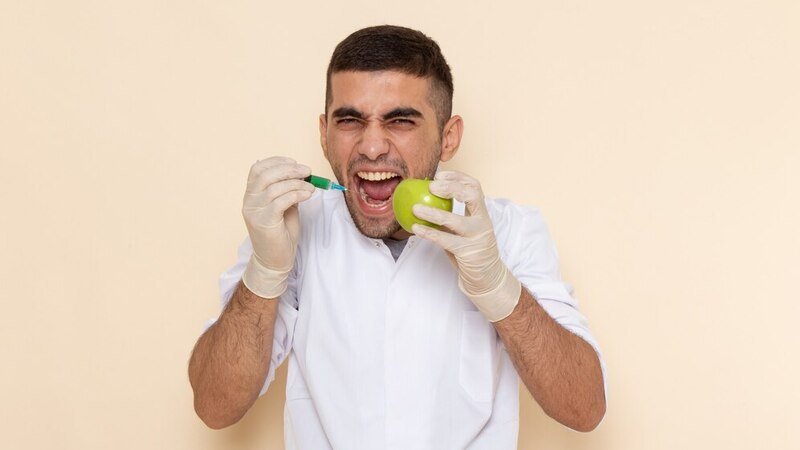A cracked tooth can be a frustrating and painful experience. While professional dental care is often essential, there are natural remedies and preventive measures that may help alleviate discomfort and support healing. Below, we explore how to fix a cracked tooth naturally, manage symptoms, and protect your oral health.
Understanding Cracked Teeth: Causes and Symptoms
Cracked teeth can occur due to several reasons, including biting on hard objects, teeth grinding, accidents, or aging. Symptoms often include sharp pain when chewing, sensitivity to hot and cold, and discomfort around the gum line. Early detection and timely action are critical to prevent further damage.
Natural Remedies for Managing a Cracked Tooth
1. Clove Oil for Pain Relief
Clove oil contains eugenol, a natural anesthetic and anti-inflammatory compound. To use:
- Dip a cotton ball in clove oil.
- Gently apply it to the affected area.
- Repeat 2-3 times daily to reduce pain and swelling.
2. Saltwater Rinse
A warm saltwater rinse helps keep the area clean and reduces the risk of infection. To prepare:
- Mix 1 teaspoon of salt in a glass of warm water.
- Swish it around your mouth for 30 seconds before spitting it out.
- Use this remedy 2-3 times daily.
3. Garlic as a Natural Antimicrobial
Garlic is known for its antimicrobial and anti-inflammatory properties. It can be used to prevent infection and reduce pain:
- Crush a garlic clove into a paste.
- Apply the paste to the cracked tooth.
- Rinse with lukewarm water after 10 minutes.
4. Turmeric for Inflammation
Turmeric contains curcumin, a natural anti-inflammatory and antibacterial agent. To use:
- Mix turmeric powder with a few drops of water to create a paste.
- Apply the paste directly to the cracked tooth.
- Leave it on for 10-15 minutes before rinsing.
5. Coconut Oil Pulling
Oil pulling with coconut oil can reduce bacteria in the mouth and promote oral health:
- Swish 1 tablespoon of coconut oil in your mouth for 10-15 minutes.
- Spit it out and rinse your mouth with warm water.
- Perform this daily for best results.
Dietary Adjustments for Healing Support
1. Soft and Nutrient-Rich Foods
Choose soft foods that are less likely to irritate the cracked tooth, such as:
- Soups
- Smoothies
- Mashed vegetables
- Yogurt
2. Foods Rich in Calcium and Vitamin D
Calcium and Vitamin D are essential for strong teeth. Incorporate foods such as:
- Dairy products (milk, cheese, yogurt)
- Leafy greens (spinach, kale)
- Fortified plant-based milks
3. Avoid Sugary and Acidic Foods
Sugary and acidic foods can aggravate tooth damage and promote decay. Reduce intake of:
- Soda and sugary drinks
- Citrus fruits
- Sweets and candies
Herbal Remedies for Oral Health
1. Aloe Vera Gel
Aloe vera is soothing and helps reduce inflammation. Apply a small amount of pure aloe vera gel to the cracked tooth for relief.
2. Peppermint Tea
Peppermint tea has mild anesthetic properties. Swish cooled peppermint tea around your mouth or use a tea bag as a compress on the affected area.
Preventive Measures for Protecting Your Teeth
1. Avoid Hard Foods
Limit biting down on hard foods such as nuts, ice, and hard candies, which can worsen cracks.
2. Use a Mouthguard
If you grind your teeth (bruxism), wearing a mouthguard at night can prevent further damage.
3. Maintain Proper Oral Hygiene
Brush twice daily with a soft-bristled toothbrush and fluoride toothpaste, and floss regularly to protect your teeth from decay and infection.
When to Seek Professional Help
While natural remedies can provide relief, it’s important to consult a dentist if:
- The pain persists or worsens.
- You notice swelling or signs of infection.
- The crack is visibly large or extends below the gum line.
A dental professional can recommend treatments such as bonding, crowns, or root canal therapy to restore the tooth’s function and appearance.
Final Thoughts
Addressing a cracked tooth naturally requires a combination of remedies, dietary adjustments, and preventive care. While these solutions can provide temporary relief, consulting a dentist is crucial for comprehensive treatment. By following these guidelines, you can support your oral health and minimize discomfort. Related Info

